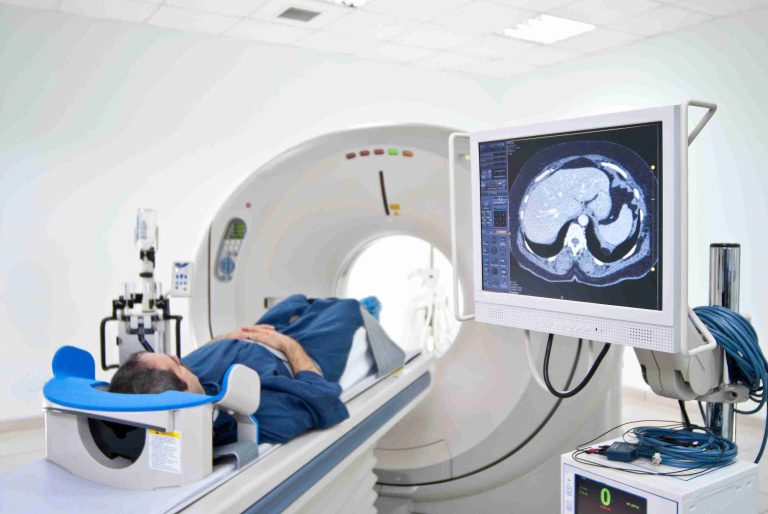Gastric pain is a common complaint, often associated with lifestyle factors such as diet, stress, or temporary infections. In many cases, it resolves with rest, hydration, or over-the-counter remedies. However, not all stomach discomfort should be taken lightly. Knowing when to seek medical evaluation for gastric pain can prevent more serious conditions from being overlooked or mismanaged.
Understanding Gastric Pain
Gastric pain generally refers to discomfort in the upper abdomen, often described as a burning, gnawing, or cramping sensation. It may be felt after meals, on an empty stomach, or randomly throughout the day. This pain can sometimes radiate to the chest, back, or sides, and it may or may not be accompanied by other symptoms like bloating, nausea, vomiting, or belching.
While most cases of gastric pain are related to indigestion or gastritis, more serious issues such as ulcers, gallstones, or even gastrointestinal cancers can present with similar symptoms. This is why it’s essential to identify red flags that indicate the need for professional evaluation.
Persistent or Worsening Pain
If your gastric pain lasts for more than a few days or progressively worsens despite lifestyle changes and basic treatment, it’s time to consult a doctor. Pain that becomes more frequent, intense, or resistant to medication could be a sign of an underlying issue such as a peptic ulcer or chronic inflammation.
Doctors may recommend diagnostic tests like a gastroscopy or imaging studies to determine the exact cause. These tests can reveal signs of mucosal damage, infection (such as H. pylori), or abnormalities in the stomach lining that require specific treatment.
Pain That Disrupts Daily Life
When gastric pain interferes with daily activities, appetite, or sleep, it should not be ignored. A sudden loss of appetite, difficulty eating, or weight loss due to stomach discomfort can be indicative of something more serious. These symptoms often go hand-in-hand with conditions like ulcers or gastrointestinal obstruction, which can worsen without timely intervention.
Moreover, fatigue, irritability, and decreased productivity due to constant gastric discomfort could suggest that the body is under physical stress that needs medical attention.
Associated with Vomiting or Blood
Epigastric pain accompanied by vomiting—especially persistent or forceful vomiting—warrants a medical review. If the vomit contains blood or resembles coffee grounds, it could indicate gastrointestinal bleeding. Similarly, passing black or tarry stools may point to bleeding in the upper digestive tract.
These are potentially life-threatening situations, often linked to bleeding ulcers or gastric varices, and need immediate evaluation by a healthcare provider. A procedure like endoscopy may be required to identify the source of bleeding and treat it.
Unexplained Weight Loss
One of the most concerning signs that gastric discomfort needs evaluation is unintentional weight loss. Losing weight without trying, particularly when paired with poor appetite, early satiety (feeling full quickly), or chronic abdominal pain, can signal an underlying digestive disorder.
Conditions like stomach cancer, Crohn’s disease, or chronic infections can cause this pattern and are often masked as routine gastric discomfort. Blood tests, scans, or endoscopic evaluations are typically required to investigate the cause thoroughly.
Family History and Risk Factors
If you have a family history of gastrointestinal disorders, ulcers, or gastric cancer, your threshold for seeking medical help should be lower. Likewise, individuals who smoke, consume alcohol frequently, or regularly take NSAIDs (non-steroidal anti-inflammatory drugs) are at higher risk for developing serious gastric conditions.
Even if the pain seems mild or infrequent, these risk factors may predispose you to more severe issues. Early medical assessment can lead to early diagnosis and better outcomes.
Age as a Consideration
Older adults with gastric distress should be particularly cautious. Aging increases the risk of serious gastrointestinal conditions, and symptoms may not always be as pronounced or easy to interpret. What may seem like minor indigestion in a younger person could be a sign of a more significant condition in someone over 60.
Doctors may recommend more proactive investigations for elderly patients, especially if the pain is new, persistent, or occurs alongside other symptoms like anemia or fatigue.
Role of Diagnostic Tools
When you consult a doctor for stomach pain, they may recommend a series of diagnostic procedures depending on your symptoms. Blood tests can help detect anemia or infection, while imaging scans like ultrasounds or CT scans can assess for structural abnormalities.
A gastroscopy (upper endoscopy) is one of the most effective tools for evaluating persistent gastric pain. It allows the doctor to visually examine the stomach lining and take biopsies if needed. This is especially important if there’s suspicion of ulcers, gastritis, or malignancy. Early use of endoscopy can lead to quicker diagnoses and targeted treatment plans.
When Over-the-Counter Medications Fail
Many people self-treat gastric pain using antacids, acid reducers, or natural remedies. While this can be appropriate for occasional indigestion, regular reliance on medication without improvement suggests an underlying problem.
If you find yourself repeatedly taking medication just to get through the day, it’s best to schedule a medical evaluation. Prolonged use of acid-suppressing drugs can also mask more serious conditions and is not a long-term solution.
Preventing Complications
Timely evaluation of gastric pain helps prevent complications. For example, an untreated ulcer can perforate the stomach lining and cause peritonitis, a serious infection of the abdominal cavity. Chronic inflammation, if left unchecked, may also lead to precancerous changes in the stomach lining.
By identifying and treating the root cause early, you not only relieve your discomfort but also avoid the progression of disease.
When in Doubt, Check It Out
Gastric pain can range from a minor inconvenience to a symptom of a life-threatening condition. If you’re unsure whether your pain is something to worry about, it’s always better to err on the side of caution. Schedule a consultation with a healthcare provider, especially if the pain is new, persistent, or accompanied by other warning signs.
A comprehensive medical evaluation ensures that nothing is overlooked and that any necessary treatment can begin as early as possible. Remember, the stomach plays a central role in overall health—and ignoring signs of trouble can have wide-reaching consequences.
Conclusion
Gastric pain is a common but potentially misleading symptom. While it is often harmless and resolves on its own, there are certain instances where it signals something more serious. Recognizing when to seek medical help can make all the difference in your health outcomes. If your gastric pain is persistent, worsening, or comes with red-flag symptoms like vomiting, blood, or weight loss, don’t delay a medical evaluation. Early diagnosis leads to better, more effective treatment and peace of mind.







